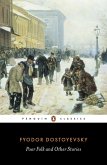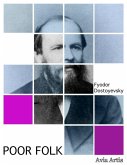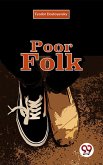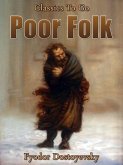With their penetrating psychological insight and their emphasis on human dignity, respect and forgiveness, Dostoyevsky's early short stories contain the seeds of the themes that came to his major novels. "Poor Folk" is a short novel focused on a powerful exchange of letters between two bright and introspective individuals living in difficult circumstances in 19th century Saint Petersburg who are in love, yet fight poverty with every inch of their breath. Bound to never be able to be together because of their conditions, these letter show how much they'd do for one another, even the means aren't there. Written during the initial stirrings of the Russian realism movement, "Poor Folk" is a vivid portrait of society's "everyman." A work that is both beautiful and tragic, it unravels an unforgettable tale of the human condition and portrays how poverty instills piety and sanctity in the human soul.
Dieser Download kann aus rechtlichen Gründen nur mit Rechnungsadresse in A, B, BG, CY, CZ, D, DK, EW, E, FIN, F, GR, HR, H, IRL, I, LT, L, LR, M, NL, PL, P, R, S, SLO, SK ausgeliefert werden.









